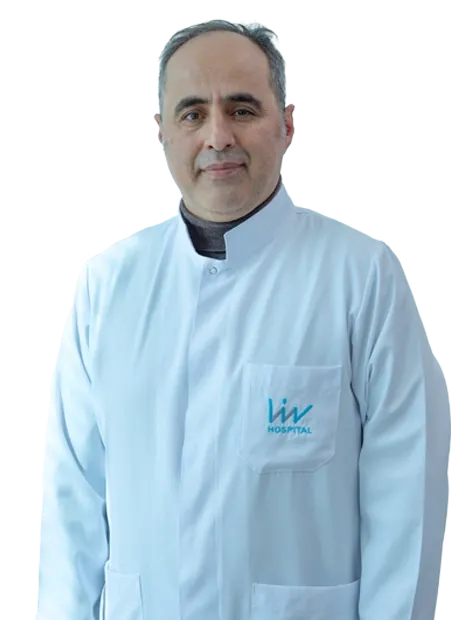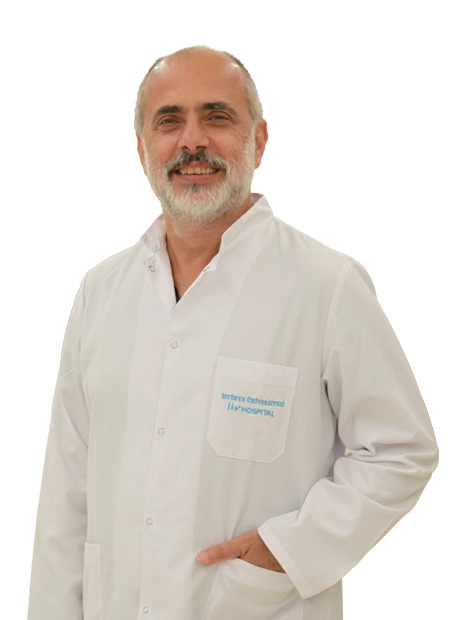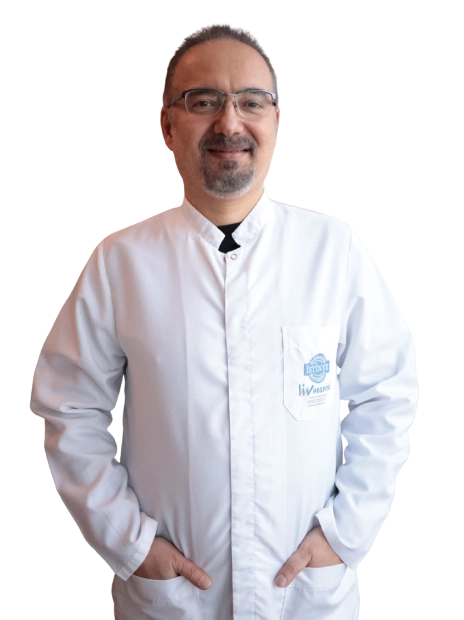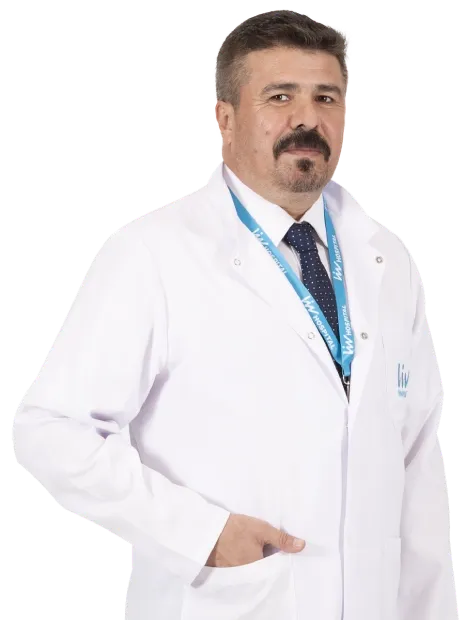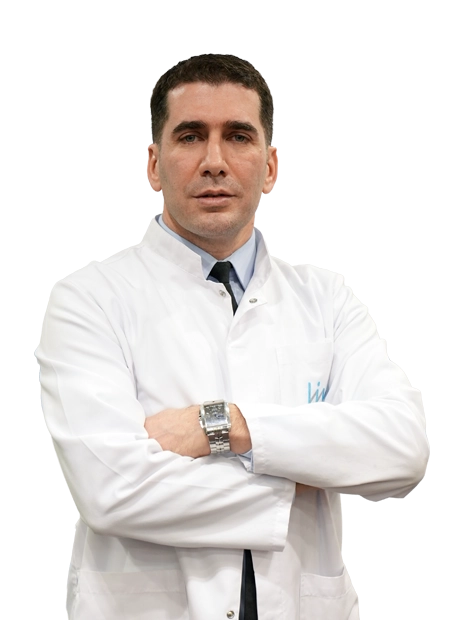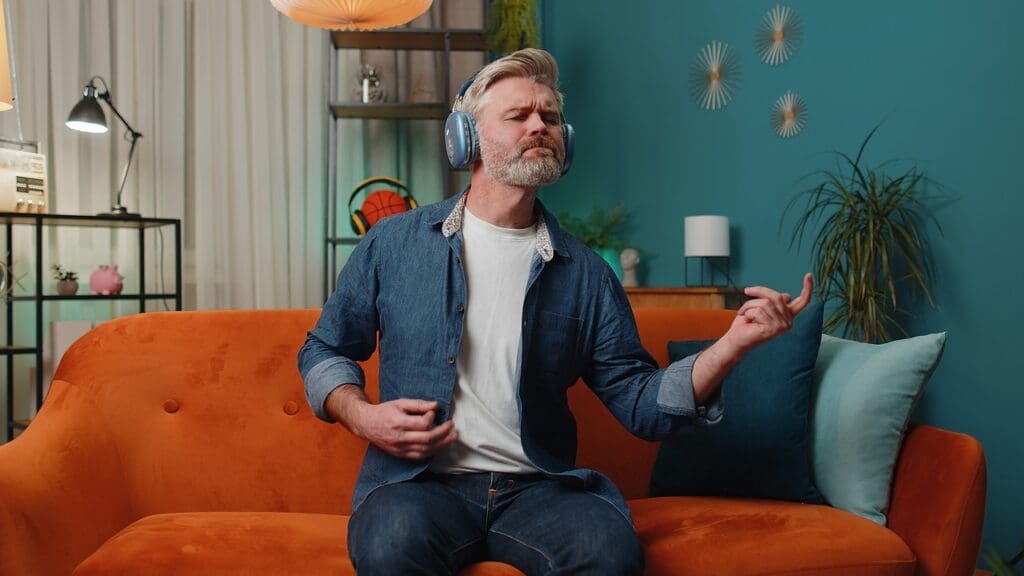
Prostate removal, or prostatectomy, is a common treatment for prostate cancer. The thought of living without a prostate can be scary. But, it’s good to know that this surgery doesn’t shorten your life. Many men stay active and healthy after the surgery.
After the surgery, men might notice some changes. At Liv Hospital, we focus on what’s best for each patient.These include infertility and issues with getting an erection or controlling urine. But, there are treatments to help with these problems. According to Healthline, most men get better from these side effects within a year.
Key Takeaways
- Prostate removal surgery does not shorten life expectancy.
- The most permanent side effect is infertility.
- Erectile dysfunction and incontinence are common but typically temporary.
- Various treatments are available for managing side effects.
- Most men recover from side effects within a year.
Understanding the Prostate: Function and Importance

The prostate gland is key to the male reproductive system. Knowing how it works is vital for men’s health. It’s a small gland but plays a big role in male reproduction.
What Does the Prostate Do?
The prostate gland makes a lot of the fluid in semen. This fluid helps sperm stay healthy and strong. It also helps push semen out during ejaculation, helping sperm reach the egg.
Location and Anatomy of the Prostate
The prostate gland is below the bladder and in front of the rectum. It’s about the size of a walnut. Because it’s around the urethra, any problems can affect how you pee.
| Prostate Component | Function |
|---|---|
| Glandular Component | Produces prostatic fluid, a key component of semen |
| Muscular Component | Assists in propelling semen during ejaculation |
Common Reasons for Prostate Removal

Prostate removal is needed for several health problems, mainly prostate cancer and Benign Prostatic Hyperplasia (BPH). It’s important for men to know about these issues to make good health choices.
Prostate Cancer as Primary Cause
Prostate cancer is a top reason for removing the prostate. The cancer’s stage and how fast it grows decide if surgery is needed. Early-stage prostate cancer might be watched closely, but more serious cases often need radical prostatectomy.
Benign Prostatic Hyperplasia (BPH)
BPH, or an enlarged prostate, is not cancer but can cause big problems with urination. If medicines don’t work, partial prostatectomy might be an option to help symptoms.
Other Medical Conditions Requiring Removal
Less common issues like prostatitis or prostate stones might also need prostate removal. Doctors usually try other treatments first before surgery.
| Condition | Primary Treatment | Surgical Option |
|---|---|---|
| Prostate Cancer | Active Surveillance, Radiation | Radical Prostatectomy |
| BPH | Medication | Partial Prostatectomy |
| Prostatitis | Antibiotics, Anti-inflammatory | Prostate Removal (rare) |
Each condition has its own treatment options. Surgery is considered based on how severe the condition is and how it affects the patient’s life.
Types of Prostate Removal Procedures
Prostatectomy, or prostate removal surgery, comes in different forms. The choice depends on the patient’s health, cancer stage, and the surgeon’s skill.
Radical Prostatectomy
Radical prostatectomy removes the whole prostate gland and some nearby tissue. It’s often chosen for early-stage prostate cancer.
Robotic-Assisted Laparoscopic Prostatectomy
This surgery is a minimally invasive method. It uses a robotic system for better precision and less blood loss. It also leads to faster recovery times.
Partial Prostatectomy Options
Partial prostatectomy, or focal therapy, removes only the cancerous part of the prostate. It tries to keep urinary and sexual functions intact while treating the cancer.
| Surgical Method | Description | Benefits |
|---|---|---|
| Radical Prostatectomy | Removal of the entire prostate gland | Effective for localized cancer |
| Robotic-Assisted Laparoscopic Prostatectomy | Minimally invasive surgery with robotic assistance | Precision, less blood loss, quicker recovery |
| Partial Prostatectomy | Removal of cancerous part of the prostate | Preserves urinary and sexual function |
Knowing about the different prostate removal surgeries helps patients make better choices. Each method has its own benefits and fits different needs.
How Long Can You Live Without a Prostate?
Many men wonder how long they can live after their prostate is removed. The good news is that, in most cases, life expectancy isn’t greatly affected by prostate removal. We’ll look at what affects how long you can live after prostate surgery.
Normal Life Expectancy After Removal
Men who have their prostate removed can usually live a normal life. This is true if they don’t have other serious health problems. The surgery is often for prostate cancer or other issues, and your overall health matters a lot.
Statistical Survival Rates (10+ Years)
Research shows men with prostate cancer who have surgery have high survival rates. This is true if the cancer is caught and treated early. Studies say the 10-year survival rate for men with localized prostate cancer treated with surgery is very good. Early treatment can make a big difference
Factors Affecting Longevity
Even though you can live without a prostate, why it’s removed can affect your life span. Your overall health, lifestyle, and other medical conditions also matter. It’s key to take good care of yourself after surgery and follow up with your doctor for the best results.
Immediate Post-Surgery Recovery Process
Knowing what to expect after surgery can make the transition easier for patients. We’ll guide you through this important time. Following your doctor’s advice is key to a smooth recovery.
Hospital Stay and Initial Recovery
Most patients stay in the hospital for one to three days after surgery. Medical staff keep a close eye on you, managing pain and looking for any issues. We make sure you’re comfortable and ready to go home before you leave.
Managing Pain and Discomfort
Managing pain is a big part of getting better. We use medicines and other methods to help you feel better. Let us know how much pain you’re in so we can adjust your treatment.
First Weeks at Home
The first weeks at home are critical for your recovery. We tell you to avoid heavy lifting, bending, or hard work. Eating well and resting enough also helps you heal. Here are some important recovery steps:
| Recovery Milestone | Timeline | Action |
|---|---|---|
| Rest and Relaxation | First 2 weeks | Avoid strenuous activities |
| Pain Management | First 4 weeks | Follow medication regimen |
| Follow-up Appointments | As scheduled | Attend all scheduled visits |
By following these guidelines, you can make the recovery process smoother. This sets you up for a successful recovery in the long run.
Permanent Changes to Fertility and Ejaculation
It’s important for patients to understand how prostate removal affects fertility and ejaculation. The prostate gland is key to the male reproductive system. Its removal can have lasting effects.
Why Infertility Occurs After Prostatectomy
Men often face infertility after a prostatectomy. This is because the prostate gland and seminal vesicles are removed. These organs are vital for making seminal fluid. Without them, sperm is ejaculated in a dry form, or with very little fluid, making it hard to conceive naturally.
Changes to Ejaculation and Orgasm
Prostate removal surgery can change how men experience ejaculation and orgasm. Some men may have dry orgasms, feeling orgasm without any fluid. This change can be upsetting, affecting their sexual satisfaction.
Family Planning Considerations Before Surgery
Men who want children should think about family planning before prostate removal surgery. Sperm banking is often recommended. It allows men to save their sperm for future use in IVF or ICSI.
| Family Planning Option | Description |
|---|---|
| Sperm Banking | Preserving sperm for future use in assisted reproductive technologies. |
| IVF (In Vitro Fertilization) | A procedure where an egg is fertilized with sperm outside the body. |
| ICSI (Intracytoplasmic Sperm Injection) | A specialized form of IVF where a single sperm is injected into an egg. |
Men planning to have prostate removal should talk to their healthcare provider about family planning. For more on life after prostate removal, visit Compass Oncology’s blog.
Managing Urinary Incontinence After Prostatectomy
After a prostatectomy, some men face urinary incontinence. This can really change their life. It’s not just a small problem; it can hurt their self-esteem and daily life.
Types and Severity of Incontinence
Men might deal with stress incontinence or urge incontinence after surgery. How bad it is can vary a lot.
Pelvic Floor Exercises and Rehabilitation
Pelvic floor exercises, or Kegel exercises, are very helpful. They make the muscles around the bladder stronger.
Rehabilitation programs mix these exercises with lifestyle changes and biofeedback. They help men control their bladder again.
Medical Devices and Surgical Options
Some men need medical devices like penile clamps or absorbent products. For serious cases, artificial urinary sphincters might be an option.
Men dealing with incontinence after prostate surgery should talk to a doctor. They can find the best treatment together.
Addressing Erectile Dysfunction Following Prostate Removal
Many men face erectile dysfunction after prostate removal. This condition makes it hard to get or keep an erection. Surgery can damage nerves and blood vessels near the prostate, leading to this issue.
Prevalence and Causes
Erectile dysfunction is common after prostate surgery. It depends on the surgery type, the patient’s age, and their sexual health before surgery. The main reason is damage to nerves and blood vessels needed for an erection.
Medical Treatments and Devices
There are many ways to treat erectile dysfunction after prostate surgery. Options include pills, vacuum devices, implants, and injections. The best choice depends on how severe the ED is, what the patient prefers, and the cause.
| Treatment Option | Description | Success Rate |
|---|---|---|
| Oral Medications (PDE5 inhibitors) | Drugs that help increase blood flow to the penis | 60-70% |
| Vacuum Erection Devices | Devices that use suction to draw blood into the penis | 70-80% |
| Penile Implants | Surgical implants that enable erection | 80-90% |
Nerve-Sparing Techniques and Recovery
Nerve-sparing surgery helps men keep their erectile function. It aims to protect the nerves and blood vessels. Younger men and those with good sexual health before surgery tend to recover better.
Dealing with erectile dysfunction after prostate surgery is tough. But, with the right treatment and support, many men can regain their sexual function. This improves their overall quality of life.
Psychological and Emotional Aspects of Life Without a Prostate
Dealing with the loss of a prostate is a big part of a man’s healing journey. It can bring about emotional and psychological changes. These changes can touch many areas of a man’s life.
Impact on Self-Image and Masculinity
Removing the prostate can change how a man sees himself. He might feel less masculine because of sexual function changes. It’s important to talk about these feelings and get support.
Relationship Challenges and Communication
Prostate removal can also affect relationships, like the one with a partner. Men and their partners might struggle with sexual issues and emotional changes. Talking openly is key to overcoming these problems. Couples might find it helpful to see a counselor to work through these new challenges together.
Support Resources and Counseling Options
There are many places where men can find help after losing a prostate. These include:
- Support groups for prostate cancer survivors
- Counseling services focusing on sexual health and relationships
- Online forums and communities sharing personal experiences
- Professional therapy to address anxiety, depression, or other mental health concerns
Looking for help is a brave step. Using these resources can really help improve a man’s life after losing a prostate.
Alternatives to Complete Prostate Removal
Men with prostate cancer have many treatment options beyond surgery. It’s important to know these alternatives to make the best choice for treatment.
Active Surveillance for Low-Risk Cancer
Active surveillance is a way to watch cancer closely. It involves regular PSA tests, exams, and biopsies. This method is best for men with low-risk cancer, helping them avoid treatment side effects.
Radiation Therapy Options
Radiation therapy kills cancer cells with high-energy rays. There are two types: external beam radiation therapy (EBRT) and brachytherapy. EBRT uses rays from outside the body, while brachytherapy places radioactive seeds inside the prostate.
Focal Therapies and Emerging Treatments
Focal therapies, like high-intensity focused ultrasound (HIFU) and cryotherapy, aim to destroy cancer while saving healthy tissue. These methods are less invasive than surgery and may have fewer side effects.
| Treatment Option | Description | Potential Benefits |
|---|---|---|
| Active Surveillance | Monitoring cancer through regular tests and exams | Avoids or delays treatment side effects |
| Radiation Therapy | Kills cancer cells with high-energy rays | Effective for localized cancer, preserves prostate |
| Focal Therapies | Destroys cancerous tissue with minimal invasion | Less invasive, potentially fewer side effects |
It’s vital for patients to talk to their healthcare provider about these options. This way, they can choose the best treatment for their situation and preferences.
Real-Life Experiences: Quality of Life Without a Prostate
Men who have had their prostate removed share their stories. These stories show both challenges and good outcomes. They give us a glimpse into life after such a big surgery.
Patient Testimonials and Surveys
Many studies and patient stories show how men feel after prostate removal. Some say they feel healthier and less worried about cancer. “After surgery, I felt a sense of relief knowing that the cancer was removed,” one patient said.
Returning to Work and Normal Activities
Going back to normal life is different for everyone. Some men get back to their routines quickly, while others take more time. Pelvic floor exercises and rehabilitation programs help men regain strength and confidence.
Long-Term Adaptation Strategies
Managing side effects like urinary incontinence and erectile dysfunction is key. Men find that support from healthcare providers, family, and support groups is very helpful. Sharing experiences and advice helps men adjust to their new life.
In summary, living without a prostate can be tough, but many men adapt and live well. Their stories highlight the need for good care and support during recovery.
Conclusion: Embracing Life After Prostate Removal
Life after prostate removal can be tough but also rewarding. We’ve looked at the reasons for surgery and the changes that follow. It’s key to understand these changes to live well without a prostate.
Studies show men can live long, happy lives after surgery. In fact, research indicates most men see big improvements in symptoms over time. Almost all regain control over their bladder within two years.
There are hurdles, like dealing with incontinence and erectile issues. But, there are many resources to help men on this path. By knowing what to expect and getting support, men can do well after surgery.
To live well without a prostate, health and well-being are key. With the right attitude and support, men can face challenges head-on and enjoy life fully.
Can you live without a prostate?
Yes, living without a prostate is possible. Many men have the surgery for prostate cancer or other issues. Afterward, they can live normal, healthy lives.
How long can you live without a prostate gland?
Life expectancy doesn’t change much after removing the prostate. Survival rates depend more on the cancer’s stage than the surgery itself. Men can live for years without a prostate.
What changes can I expect after prostate removal?
Men might notice changes in how they urinate and have sex. This includes incontinence and erectile dysfunction. But, these issues can be managed with treatments and exercises.
Will I be incontinent after prostate surgery?
Some men might have trouble controlling their urine after surgery. But, how bad it is and for how long varies. Exercises and other strategies can help with incontinence.
Can I stil have an orgasm without a prostate?
Yes, men can have orgasms after prostate removal. But, the way they ejaculate changes. Orgasms might be dry, or “dry orgasm.”
Are there alternatives to complete prostate removal?
Yes, there are other options. These include watching and waiting for low-risk cancer, radiation, and new treatments like focal therapies. The best choice depends on the man’s health and cancer stage.
How does prostate removal affect fertility?
Removing the prostate usually makes men infertile. This is because the seminal vesicles and prostate are removed or changed. Men thinking about having kids should talk to their doctors first.
Can erectile dysfunction be treated after prostate removal?
Yes, erectile dysfunction can be treated. Doctors use medicines, devices, and special surgery techniques to help. These can help men regain their ability to have an erection.
What support is available for men after prostate removal?
There’s a lot of support for men after surgery. This includes counseling, support groups, and programs to help with emotional and psychological changes.
Can men return to normal activities after prostate surgery?
Yes, most men can get back to their usual activities after surgery. Recovery times vary, but many men can go back to work and other activities within a few weeks or months.
Is life expectancy normal after prostate removal for cancer?
For many men, life expectancy is normal after surgery for cancer. This is true if the cancer is caught and treated early. Survival rates are often good, even for localized cancer.
What are the psychological impacts of living without a prostate?
Living without a prostate can affect a man’s self-image and relationships. But, there are resources and counseling to help men and their partners deal with these changes.
Can you survive without your prostate?
Yes, surviving without a prostate is common for men who have the surgery. To live well after surgery, managing side effects and following care instructions is key.
How does prostate removal affect quality of life?
Prostate removal can change how men urinate and have sex. But, many men adapt and live fulfilling lives. With the right care and support, quality of life can be maintained.
Can a man live without his prostate gland?
Yes, men can live without their prostate gland. Surgery is a treatment for prostate issues, and with modern care, men can have a good life after surgery.
What happens if you don’t have a prostate?
Without a prostate, men might face changes in urination and sex. But, with the right medical care and support, these changes can be managed. This allows for a normal life expectancy and quality of life.
Can men live without prostate?
Yes, men can live without a prostate. Surgery is a common treatment for prostate cancer and other issues. Many men lead healthy, active lives after the surgery.
Reference:
https://www.healthline.com/health/enlarged-prostate/can-you-live-without-a-prostate
https://www.helios-russia.ru/en/article/gaining-and-sustaining-health-life-without-prostate-gland
https://www.compassoncology.com/blog/life-after-prostate-removal




